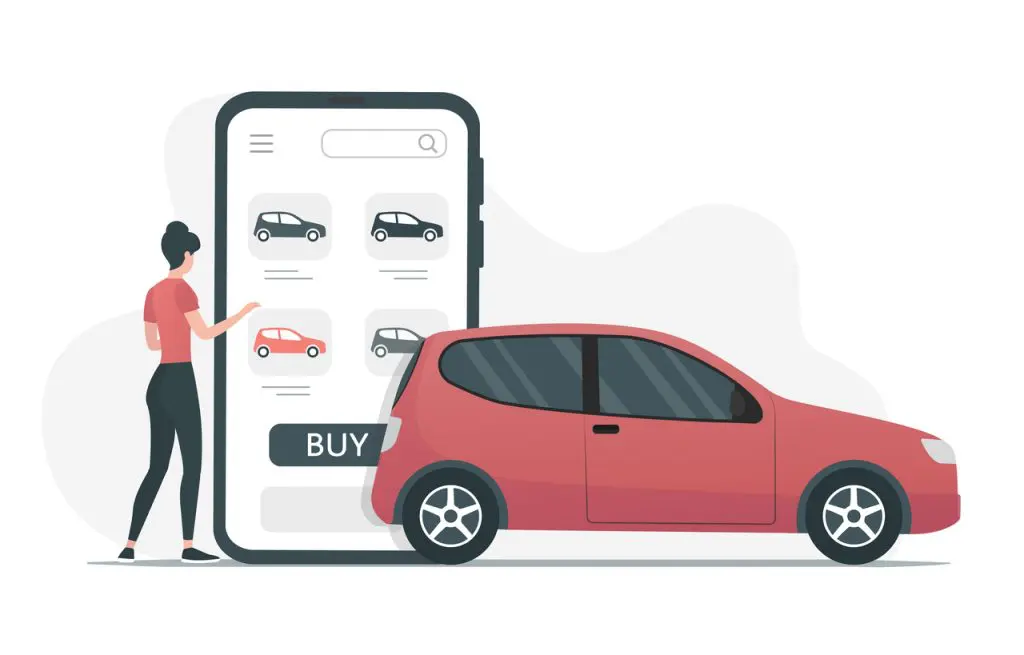Buying a bank-owned car can be a savvy choice for bargain hunters looking to score a great deal on their next vehicle purchase. These cars, often referred to as Real Estate Owned (REO) vehicles, are typically repossessed by banks due to loan defaults. When borrowers can’t repay their auto loans, banks repossess these vehicles and aim to sell them quickly to recover their losses. This situation presents a unique opportunity for buyers as banks often price these cars below market value to facilitate a quick sale.
For the standard US consumer, purchasing a bank-owned car can mean significant cost savings compared to buying new or even from traditional used car dealerships. These vehicles can range from nearly new models with minimal wear and tear to older cars that may need some maintenance. However, buyers should approach the process with caution, as bank-owned cars may come with risks such as limited warranties or unknown mechanical issues. By understanding the process, doing thorough research, and conducting meticulous inspections, buyers can maximize their chances of finding a reliable vehicle at a fraction of its original cost.

Understanding Bank-Owned Cars
Bank-owned cars, also known as Real Estate Owned (REO) vehicles in the automotive industry, are vehicles that banks have repossessed from their owners due to non-payment of auto loans. These cars enter the bank’s possession after attempts to reclaim loan payments fail, making them assets that the bank needs to sell quickly to recover their financial losses. Here’s what potential buyers need to know:
- Reasons for Sale: Banks sell these cars at discounted prices because their primary goal is to recoup outstanding loan amounts, not to profit from car sales.
- Availability and Variety: Bank-owned cars can range from nearly new vehicles to older models, depending on when they were repossessed and how long they’ve been in the bank’s possession.
- Comparative Cost Advantage: Buyers can often find bank-owned cars priced significantly lower than similar models at traditional dealerships or private sellers.
For consumers, purchasing a bank-owned car offers substantial financial advantages. These vehicles are typically priced below market value, presenting opportunities to acquire a reliable vehicle at a reduced cost. However, it’s crucial for buyers to weigh these benefits against potential risks such as limited warranties and varying conditions. Conducting thorough research, understanding the purchase process, and inspecting the vehicle carefully are essential steps to ensure a successful and cost-effective purchase of a bank-owned car.
Advantages of Buying Bank-Owned Cars
Buying a bank-owned car offers several distinct advantages for bargain-seeking consumers in the US:
- Cost Savings: Bank-owned cars are often priced significantly lower than their market value counterparts, making them an attractive option for budget-conscious buyers.
- Newer Models at Lower Prices: It’s not uncommon to find relatively newer models among bank-owned cars, sometimes only a few years old, which can provide modern features and technology at a fraction of the cost.
- Variety of Options: Banks may have a diverse inventory of vehicles, ranging from compact cars to SUVs and trucks, providing buyers with a wide selection to choose from based on their preferences and needs.
Beyond the financial benefits, purchasing a bank-owned car can also mean avoiding some of the typical dealership fees associated with buying a new or used car. Additionally, buyers may find less negotiation pressure compared to traditional sales environments, potentially simplifying the purchasing process. However, it’s important for buyers to carefully inspect these vehicles and consider any potential repair or maintenance costs that may arise due to the vehicle’s history and condition.
Challenges and Risks
While buying a bank-owned car can offer substantial savings, it’s essential for prospective buyers to be aware of potential challenges and risks associated with these purchases:
- Condition Issues: Bank-owned cars may have been neglected or poorly maintained by previous owners, leading to potential mechanical issues or the need for immediate repairs.
- Limited Warranty Coverage: Unlike purchasing from a dealership, bank-owned cars often come with minimal or no warranty coverage, leaving buyers responsible for any repairs post-purchase.
- Paperwork Complexities: There can be additional paperwork complexities associated with bank-owned cars, such as liens on the vehicle or unclear title statuses that need to be resolved before finalizing the purchase.
Despite these risks, diligent research and careful inspection can mitigate many of the potential downsides. Buyers should thoroughly review vehicle history reports, enlist the help of a trusted mechanic for a pre-purchase inspection, and inquire about any available maintenance records from the bank or previous owner. Understanding these risks and taking proactive steps can help ensure that purchasing a bank-owned car remains a rewarding and cost-effective option for budget-conscious consumers in the US.
Researching and Finding Bank-Owned Cars

Finding the right bank-owned car involves thorough research and strategic planning to ensure a successful purchase:
- Online Listings: Start by exploring reputable online platforms that specialize in selling bank-owned cars. Websites like Auction.com, Repo.com, and even local bank websites often list available inventory.
- Local Auctions: Attend local auctions where banks may sell repossessed vehicles. These events can offer direct access to a wide range of cars, allowing buyers to inspect vehicles in person before bidding.
- Bank Websites and Contacts: Some banks list their REO vehicles directly on their websites or have dedicated contacts for inquiries. Contacting banks directly can provide insights into available inventory and upcoming sales.
Buyers should also consider factors such as the car’s mileage, age, and overall condition when narrowing down options. Additionally, checking reviews and testimonials about the platform or auction house can help gauge its reliability and customer satisfaction. By leveraging these resources effectively, consumers can increase their chances of finding a well-priced bank-owned car that meets their needs while minimizing risks associated with the purchase process.
Inspection and Evaluation
Before finalizing the purchase of a bank-owned car, conducting a thorough inspection is crucial to avoid potential pitfalls:
- Professional Inspection: Hire a qualified mechanic to perform a comprehensive pre-purchase inspection. They can assess the vehicle’s mechanical condition, identify any existing or potential issues, and estimate repair costs.
- Vehicle History Reports: Obtain a detailed vehicle history report from services like CARFAX or AutoCheck. These reports provide valuable information about the car’s previous ownership, maintenance history, accident records, and title status.
- Test Drive: Take the car for a test drive to evaluate its performance on different road conditions. Pay attention to engine responsiveness, braking, steering, and overall comfort.
- Interior and Exterior Inspection: Inspect both the interior and exterior of the car for signs of wear, damage, or inconsistencies. Look for rust, dents, scratches, and ensure that all features and accessories are in working order.
By conducting a meticulous inspection, buyers can make informed decisions and negotiate confidently based on the car’s actual condition. It’s essential to address any concerns or discrepancies with the bank or auction house before completing the purchase to avoid unexpected expenses or complications post-sale. Taking these steps helps ensure that purchasing a bank-owned car remains a rewarding and cost-effective option for consumers seeking affordable transportation solutions.
Negotiation and Purchase Process

Navigating the negotiation and purchase process for a bank-owned car requires preparation and a clear understanding of the buying dynamics:
- Research and Comparative Pricing: Before entering negotiations, research the market value of similar vehicles to establish a fair price range. Use this information as leverage during discussions.
- Inspect and Identify Issues: Highlight any identified issues or necessary repairs discovered during the inspection. This information can influence the negotiation process and potentially lower the purchase price.
- Consideration of Additional Costs: Factor in additional costs such as taxes, registration fees, and potential transportation expenses when determining your total budget.
- Bidding at Auctions: If purchasing through an auction, set a maximum bid limit based on your budget and the vehicle’s condition. Be prepared to act decisively during the bidding process to secure the best deal.
It’s essential to negotiate confidently but respectfully with the bank or auction house representatives. Clarify any terms or conditions related to the sale, including payment methods and timelines for completing paperwork. By approaching negotiations strategically and being prepared for potential challenges, buyers can maximize their chances of securing a bank-owned car at a favorable price while minimizing unexpected expenses or complications.
Legal and Financial Considerations
When purchasing a bank-owned car, it’s important to navigate through legal and financial considerations to ensure a smooth transaction:
- Title and Ownership: Verify the title status of the vehicle to ensure there are no outstanding liens or legal issues. Clear title ensures that the ownership transfer process is straightforward.
- Paperwork Completion: Ensure all necessary paperwork is completed accurately and signed by both parties. This typically includes a bill of sale, transfer of title, and any additional documents required by your state’s Department of Motor Vehicles (DMV).
- Taxes and Fees: Calculate applicable taxes and registration fees based on the purchase price of the vehicle. Budget for these costs in addition to the purchase price to avoid financial surprises.
- Insurance Coverage: Arrange for insurance coverage before taking possession of the vehicle. Some banks may require proof of insurance before finalizing the sale.
By understanding these legal and financial considerations, buyers can prevent potential complications and ensure a legally sound purchase of a bank-owned car. Consulting with a legal professional or DMV representative can provide additional guidance specific to your state’s regulations, ensuring a seamless transition of ownership and registration. Taking these proactive steps helps safeguard your investment and allows you to enjoy your new vehicle with peace of mind.
Conclusion
In conclusion, buying a bank-owned car can be a rewarding experience for consumers seeking quality vehicles at affordable prices. Here are some key takeaways to keep in mind:
- Value for Money: Bank-owned cars often offer substantial cost savings compared to buying new or from traditional dealerships, making them a viable option for budget-conscious buyers.
- Risk Awareness: While the potential for savings is significant, buyers should be aware of the risks associated with purchasing bank-owned cars, such as limited warranty coverage and potential maintenance issues.
- Research and Inspection: Thorough research, including checking vehicle history reports and conducting professional inspections, is crucial to identifying the best possible vehicle and minimizing post-purchase surprises.
- Negotiation Skills: Developing strong negotiation skills and understanding the purchase process can help buyers secure the best deal on a bank-owned car.
By approaching the purchase process with diligence and caution, consumers can leverage the benefits of buying bank-owned cars while mitigating potential risks. Whether purchasing through online listings or local auctions, staying informed and proactive ensures a smoother transaction and enhances the likelihood of acquiring a reliable vehicle that meets both budget and quality expectations.
Resources and Additional Tips
For those interested in purchasing a bank-owned car at a low price, here are some additional resources and tips to consider:
- Online Platforms: Explore reputable websites specializing in bank-owned car sales, such as Auction.com, Repo.com, and local bank websites that may list available inventory.
- Local Auctions: Attend local auctions where banks sell repossessed vehicles directly to the public, providing an opportunity to inspect cars in person before bidding.
- Vehicle History Reports: Obtain comprehensive reports from services like CARFAX or AutoCheck to uncover crucial details about a car’s history, including past accidents, ownership records, and maintenance history.
- Mechanical Inspections: Prioritize professional inspections by qualified mechanics to assess the overall condition of the vehicle and identify any potential issues.
- Financing Options: Explore financing options available through banks or credit unions that specialize in vehicle loans for bank-owned cars.
- Maintenance and Ownership Tips: Once purchased, consider regular maintenance to keep the car in optimal condition and ensure longevity. Understanding ownership responsibilities, including insurance coverage and registration requirements, is essential for a hassle-free experience.
By utilizing these resources and tips effectively, consumers can navigate the process of purchasing a bank-owned car confidently. Whether seeking a reliable daily driver or a budget-friendly vehicle for specific needs, these insights empower buyers to make informed decisions and secure a valuable investment in their transportation needs.






